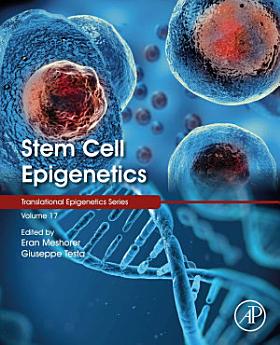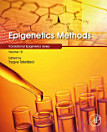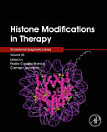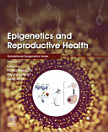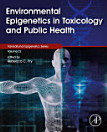Stem Cell Epigenetics
About this ebook
About the author
Prof. Meshorer is the Arthur Gutterman Family Chair for Stem Cell research. He completed his PhD at the Hebrew University and performed his post-doctoral studies at the National Cancer Institute, NIH. In 2007, he returned to the Hebrew University as an Alon Fellow and is currently heading the ‘Epigenetics, Stem cells & Neurons’ laboratory in the Department of Genetics and the Edmond and Lily Safra Center for Brain Sciences (ELSC). Meshorer's lab research focuses on single cell and genome-wide approaches to understand chromatin plasticity and epigenetic regulation in embryonic and neuronal stem cells, during reprogramming, and in pluripotent models of neurodegenerative diseases. Meshorer’s lab identified the unique features of chromatin plasticity in pluripotent stem cells, the mechanisms supporting chromatin plasticity in pluripotent cells, developed epigenomic tools for the stem cell community, and established unique neurodegenerative disease models in human pluripotent stem cells. In recent years, Prof. Meshorer co-pioneered the field of Paleo-epigenetics, having reconstructed the first DNA methylation maps of ancient genomes, including the Neanderthal and the Denisovan, a method which led to the first reconstruction of the Denisovan and the 2019 ‘Breakthrough of the year’ award by Science magazine. Prof. Meshorer has been a past and/or present member of five European consortium’s, one of which (EpiSyStem), he currently coordinates. He also currently serves on the International Society for Stem Cell Research (ISSCR) Publication Committee, is a board member of several national societies, and he is the current Head of the Department of Genetics, institute of Life Sciences, Hebrew University.
Giuseppe Testa holds an MD from the University of Perugia, a PhD from the European Molecular Biology Laboratory in Heidelberg, and an MA in Health Care Ethics and Law from the University of Manchester. A three-time European Research Council (ERC) awardee, Prof. Giuseppe Testa is Full Professor of Molecular Biology at the University of Milan, Head of the Center for Neurogenomics of the Human Technopole and Director of the High Definition Disease Modelling Laboratory at the European Institute of Oncology.His lab spearheads stem cell and organoid-based patient-specific models for neurodevelopmental disorders and cancer, focusing on genetic and environmental causes of chromatin dysregulation as a shared and increasingly relevant layer of pathogenic mechanisms. Starting from densely phenotyped clinical cohorts and integrating multi-layered omics, single cell dynamics and high-end computing, the aim is to advance a foundational framework for precision oncology and neuropsychiatry. Key accomplishments include the development of new genome engineering technologies, the characterization of novel enzymes required for neural development, the first reprogramming-based models of human diseases caused by symmetric gene dosage imbalances, the single cell omics-based mechanistic dissection of human corticogenesis in brain organoids, and the identification of the master regulator gene underlying the evolution of the modern human face. A further unique accomplishment is the successful pursuit of a parallel career as practicing life scientist and scholar in Bioethics and Science and Technology Studies (STS). His first book ‘Naked genes: Reinventing the Human in the Molecular Age’, co-authored with Helga Nowotny, published in German, English and Italian, was widely reviewed in the leading press. He is the recipient of several scientific prizes, including in 2003 the Roche Prize for leading bioscientist of the next decade.
